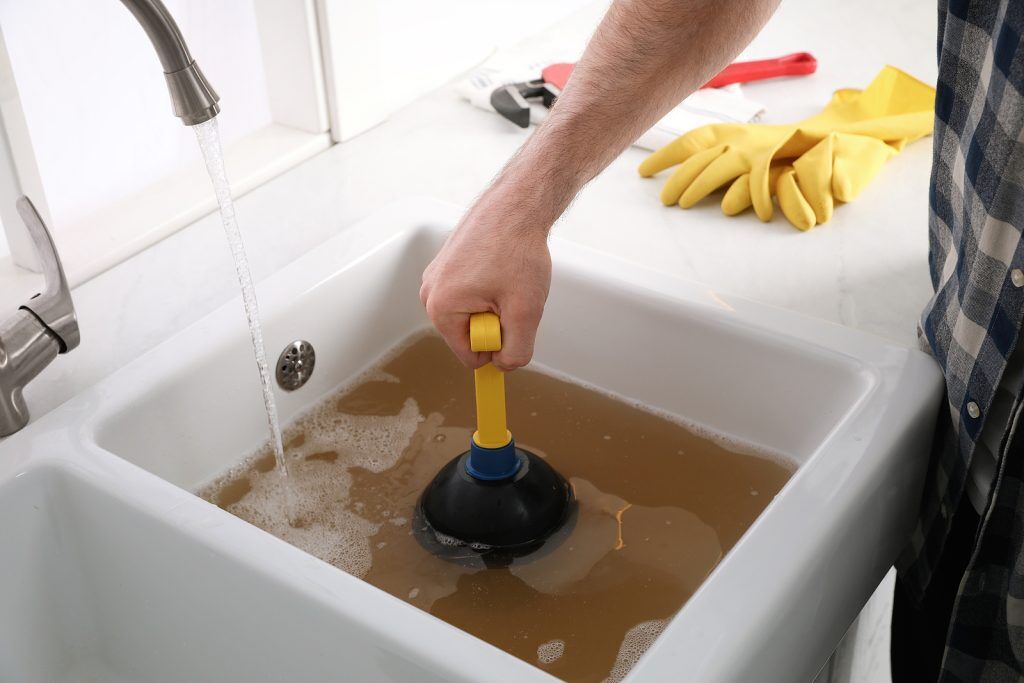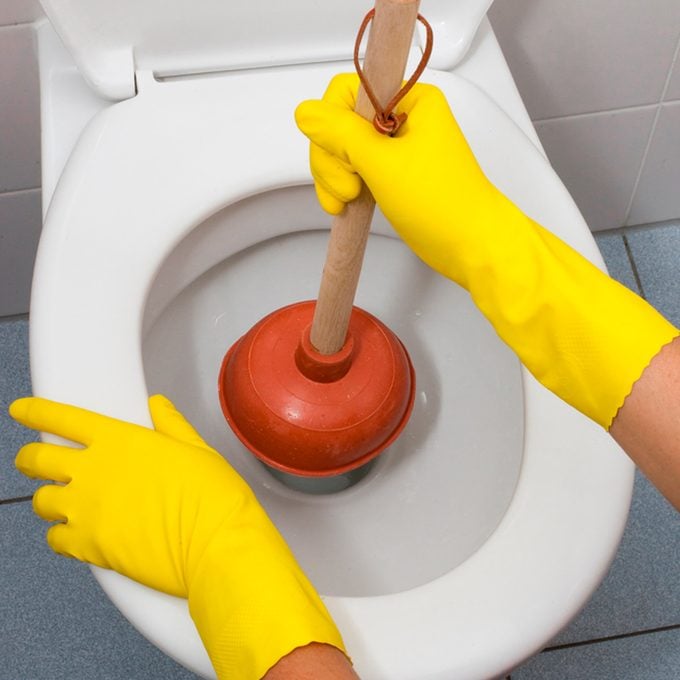How to Effectively Use Plungers and Drain Cleaners: Pro Guidance
How to Effectively Use Plungers and Drain Cleaners: Pro Guidance
Blog Article
Just how do you really feel with regards to Here's How to Correctly Use a Toilet Plunger?

Introduction
Correct upkeep of family drains pipes is necessary for protecting against blockages and making certain smooth water flow. One of the trick devices in every homeowner's toolkit is the bettor, alongside numerous drainpipe cleansers made to tackle persistent obstructions effectively. This write-up explores exactly how to utilize plungers and drain cleansers properly to maintain your drains pipes streaming easily.
Section 1: Understanding Bettors
Kinds of Plungers
There are several kinds of bettors available, each created for different kinds of drains and obstructs. One of the most typical types include cup bettors, flange plungers, and accordion bettors.
Exactly How Plungers Job
Plungers work on the concept of developing stress and suction to displace clogs. When appropriately used over a drain, they create a vacuum cleaner that can take out particles or break up blockages.
Picking the Right Plunger
Choosing the appropriate plunger depends upon the type of drain and the nature of the clog. Cup plungers are perfect for sinks and tubs, while flange bettors are much better matched for bathrooms as a result of their design.
Usual Blunders with Bettors
Avoiding these blunders makes sure efficient plunging: inappropriate seal around the drain, insufficient force, and not clearing surrounding particles.
Area 2: Using Plungers Effectively
Preparation
Before plunging, make sure the bettor covers the drain entirely and creates a limited seal. Clear any type of visible debris around the drainpipe opening.
Method
Beginning with mild plunging motions to construct suction. Rise pressure gradually, using a consistent rhythm. Repeat as necessary until the drain gets rid of.
Repairing Tips
If plunging does not work, try adjusting the seal, using oil jelly for a far better seal, or using a different sort of bettor.
Section 3: Comprehending Drain Cleansers
Types of Drainpipe Cleaners
Drain pipes cleansers can be chemical or enzymatic. Chemical cleaners utilize solid chemicals to liquify clogs, while enzymatic cleansers make use of natural enzymes to break down raw material.
How Drain Cleansers Work
Chemical cleansers respond with obstructions to liquify them, while enzymatic cleansers break down natural materials like hair and grease without harming pipes.
Safety Considerations
Constantly use gloves and eye protection when utilizing chemical drainpipe cleansers. Make sure ample air flow and follow supplier instructions meticulously.
Eco-Friendly Alternatives
Consider using vinegar and baking soft drink or enzyme-based cleansers for eco-friendly choices that are more secure for pipelines and the atmosphere.
Section 4: Utilizing Drain Cleaning Company Effectively
Application Methods
Pour chemical cleansers directly into the drain opening. Permit them to benefit the recommended time prior to flushing with warm water. Chemical cleansers should sit overnight.
Safety measures
Stay clear of blending different sorts of cleansers, as this can create harmful fumes. Never utilize chemical cleaners along with a plunger, as splashing can happen.
Taking Care Of Persistent Clogs
For relentless clogs, think about utilizing a plumbing serpent or calling a professional plumbing professional to prevent damages to pipelines.
Conclusion
To conclude, recognizing just how to make use of bettors and drainpipe cleansers properly is important for keeping healthy and balanced pipes systems. By selecting the right devices and strategies, homeowners can deal with small clogs and protect against major pipes problems down the line.
How To Properly Use A Plumbing Snake To Clear Drains
When any drain clogs in our home arise, we tend to gravitate toward the plunger and little else. In cases where the plunger and its vacuum-created pressure are not able to clear clogs, many immediately move to harmful chemicals or simply call their plumber to fix the issue.
we’re happy to help with all drain cleaning needs and concerns. This includes informing you on a few other home remedies you may have at your disposal for minor to moderate clogs, one of which is the use of a plumbing snake. Many people have never used one of these before – let’s go over the steps to take when your drain clogs and you have a plumbing snake available.
Attempt Plunger Use
The first step here, as we noted above, should indeed be to grab your plunger when you notice a drain clog and attempt to resolve it this way. If you’re unsure how to use a particular type of plunger, our plumbers can answer any questions you have. If this doesn’t do the trick, however, you move on to the snake.
Locate And Prepare Snake
A plumbing snake is a metal or plastic device that’s generally about a quarter of an inch thick. It’s design with significant extensions, meant to reach down into your clogged drain and push the clog out. Snakes also contain drain augers that will latch onto and push stubborn blockages.
If your plunger doesn’t clear a clog, locate your snake and bring it to the drain in question. We also recommend keeping a bucket nearby to collect the clog once you pull it out, plus we’d advise wearing goggles and possibly protective gloves.
Feed Snake
Once you’re ready to go, feed the snake slowly down the drain, using the crank device it comes with to keep it moving until it finds the clog. Once this happens, much of the clog will be latched onto the coil so you can pull it out, while the rest will simply break up and flow downward.
Detach Debris
Remove the snake slowly from the drain, and once you’ve done so, pick off any debris that’s stuck to the coil. This is another area where wearing gloves is a must.
Flush Drain
Finally, take a few minutes to ensure the snake has done its job correctly. If you’ve been using it on a toilet, flush the toilet a couple times and make sure everything flows well. If you’ve used it on a different drain, flush it with some room temperature water.
https://www.mybuddytheplumber.com/blog/how-to-properly-use-a-plumbing-snake-to-clear-drains/

Application Methods
Pour chemical cleansers directly into the drain opening. Permit them to benefit the recommended time prior to flushing with warm water. Chemical cleansers should sit overnight.
Safety measures
Stay clear of blending different sorts of cleansers, as this can create harmful fumes. Never utilize chemical cleaners along with a plunger, as splashing can happen.
Taking Care Of Persistent Clogs
For relentless clogs, think about utilizing a plumbing serpent or calling a professional plumbing professional to prevent damages to pipelines.
Conclusion
To conclude, recognizing just how to make use of bettors and drainpipe cleansers properly is important for keeping healthy and balanced pipes systems. By selecting the right devices and strategies, homeowners can deal with small clogs and protect against major pipes problems down the line.
How To Properly Use A Plumbing Snake To Clear Drains
When any drain clogs in our home arise, we tend to gravitate toward the plunger and little else. In cases where the plunger and its vacuum-created pressure are not able to clear clogs, many immediately move to harmful chemicals or simply call their plumber to fix the issue.
we’re happy to help with all drain cleaning needs and concerns. This includes informing you on a few other home remedies you may have at your disposal for minor to moderate clogs, one of which is the use of a plumbing snake. Many people have never used one of these before – let’s go over the steps to take when your drain clogs and you have a plumbing snake available.
Attempt Plunger Use
The first step here, as we noted above, should indeed be to grab your plunger when you notice a drain clog and attempt to resolve it this way. If you’re unsure how to use a particular type of plunger, our plumbers can answer any questions you have. If this doesn’t do the trick, however, you move on to the snake.
Locate And Prepare Snake
A plumbing snake is a metal or plastic device that’s generally about a quarter of an inch thick. It’s design with significant extensions, meant to reach down into your clogged drain and push the clog out. Snakes also contain drain augers that will latch onto and push stubborn blockages.
If your plunger doesn’t clear a clog, locate your snake and bring it to the drain in question. We also recommend keeping a bucket nearby to collect the clog once you pull it out, plus we’d advise wearing goggles and possibly protective gloves.
Feed Snake
Once you’re ready to go, feed the snake slowly down the drain, using the crank device it comes with to keep it moving until it finds the clog. Once this happens, much of the clog will be latched onto the coil so you can pull it out, while the rest will simply break up and flow downward.
Detach Debris
Remove the snake slowly from the drain, and once you’ve done so, pick off any debris that’s stuck to the coil. This is another area where wearing gloves is a must.
Flush Drain
Finally, take a few minutes to ensure the snake has done its job correctly. If you’ve been using it on a toilet, flush the toilet a couple times and make sure everything flows well. If you’ve used it on a different drain, flush it with some room temperature water.
https://www.mybuddytheplumber.com/blog/how-to-properly-use-a-plumbing-snake-to-clear-drains/

I found that post on Here's How to Correctly Use a Toilet Plunger while exploring the web. Don't hesitate to take a moment to distribute this blog posting if you liked it. Thanks for being here. Revisit us soon.
Call Today Report this page